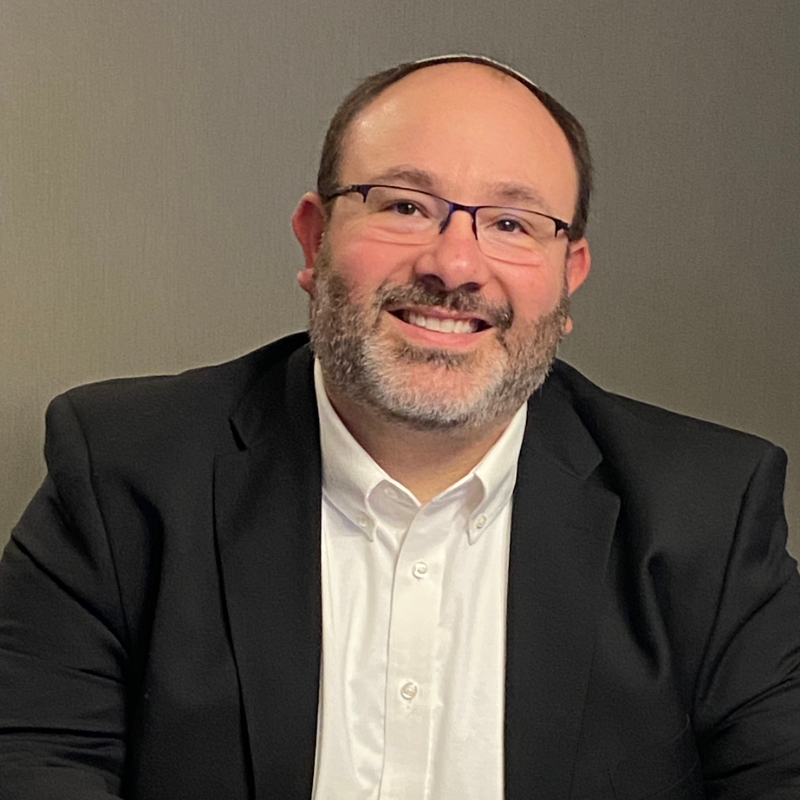Parshat Miketz picks up with the story of Joseph as a prisoner in Egypt and follows him on his journey to becoming Pharaoh’s vizier. (Genesis 41:1-44:17) Read during Chanukah, it is hard to ignore this story of moving from darkness to light and the echo that reverberates to the holiday as well as to our contemporary world.
I have always been fascinated by the question of how many days we celebrate Chanukah. When the Maccabees returned to the Temple in Jerusalem after it was desecrated, they searched for enough oil to light all the lights in the Temple. They found one small jar of oil that still had the seal of the High Priest, but it seemed sufficient to keep the lights lit for just one day. It would take eight days until new oil could be brought to the Temple. But then, as we all know, a miracle happened, and the oil lasted for eight days. So here is the real question: Since the oil was expected to last for one day, and it lasted for eight days, shouldn’t the miracle of the oil be seven? The first day, everything happened exactly as expected — what miracle are we commemorating exactly?
Find more commentaries on Chanukah.
A colleague shared a teaching from Rabbi David Hartman with me that taught that the miracle of the first day of Chanukah is that they bothered to light the lights at all. Rabbi Hartman explained,
They took a leap of faith, with absolutely no assurance that it would be successful. They lit the oil even though they knew it was insufficient. And anything important in Jewish history and in world history has only been accomplished because people have been willing to take that kind of leap of faith and leap of action, and have been willing to embark on a process when they did not know whether or not it would succeed.
What an incredible testament to the spirit of Jewish resilience and commitment to justice! Without any expectation or guarantee of success, they did this small thing because they had a belief that delaying the work was simply untenable.
We are in a moment of darkness. Many of us are anxious about the coming years and how the incoming administration will attempt to roll back gains in human rights that have been hard-fought and won — often through the dedicated work of our colleagues and communities. In my work at Jewish Family Service, I serve refugee and humanitarian entrant clients who fear for their safety given the rhetoric and policy priorities espoused by our nation’s most powerful leaders. We are in a dark time, but delaying the work of justice is simply untenable!
The story of Chanukah, and likewise the story of Joseph’s transformation, is a reminder that the darkest moments can turn into miraculous ones. Not miracles that are external, but rather ones that occur because we choose to believe, to push forward, and to light the lights; demanding a world that is more loving, more just, and more holy. This week, even though I don’t know where the rest of the oil is coming from, I choose to light a candle and bring more light into this world because it is simply untenable to remain in the darkness any longer.
Find more commentaries on hope in times of darkness.
Joseph’s story is full of miracles, but not great miracles like the splitting of the Sea of Reeds or the receiving of Torah at Sinai. Rather, his story — and the story of Chanukah — is about the sometimes less-seen miracles of perseverance and resilience that have given us the confidence and faith to pursue our dreams in a world characterized sometimes by moments of light and at other times by intense darkness. There is comfort to be found in these narratives for those who are experiencing darkness today. Light will come — we just need to commit to the belief that darkness is unacceptable.
May we take extra time this Chanukah to celebrate the small miracles that build our capacity for resilience and resistance. And may the coming holiday season be full of commitments to lighting the lights of justice and serve as a pathway to rededicate ourselves to the work ahead, just as it has been for our ancestors in generations past. Chag Urim Sameach — Happy Chanukah!
Rabbi James Greene is the chief executive officer of Jewish Family Service (JFS) of Western Massachusetts. Based in Springfield, MA, JFS is one of the largest refugee resettlement agencies in the Commonwealth of Massachusetts. He is a 2008 graduate of the Reconstructionist Rabbinical College and is the immediate past president of the Reconstructionist Rabbinical Association.

